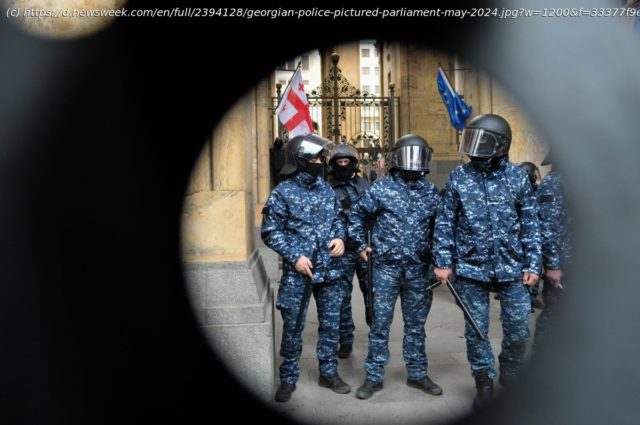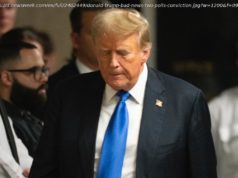Georgia’s government says a new «foreign agent» law is needed to counter malign foreign influence but protesters say it is intended to muzzle the opposition.
Georgia is bracing for a repeat showdown between the Moscow-leaning Georgian Dream ruling party and a grassroots pro-Western protest movement, as the two sides grapple over the geopolitical trajectory of the small but strategically vital South Caucasus nation.
Several weeks of protest came to a head in the streets of the capital Tbilisi on Tuesday when the Georgian Dream-dominated parliament approved the third and final reading of its «foreign agent» law, under which media or civil society groups receiving more than 20 percent of their funding from abroad will have to register as «organizations serving the interests of a foreign power» or face fines.
The legislation is akin to that enacted in Russia in 2012, which has allowed President Vladimir Putin to further choke domestic dissent. It is also similar to legislation tabled in Hungary, Slovakia, Bosnia and Herzegovina, Kyrgyzstan, and the self-declared breakaway Georgian Abkhazian Republic; all places where illiberal political leaders have been closely engaged with or directed by the Kremlin.
Lawmakers voted 84 to 30 to back what opponents have dubbed the «Russian Law,» prompting clashes both inside the chamber of Georgia’s imposing parliament building and in the streets surrounding it.
The government says the measure is required to push back against malign foreign influence. Protesters say it is intended to muzzle the opposition and cement the power of Georgian Dream and its chief, oligarch Bidzina Ivanishvili.
Parliament now has 10 days to submit the bill to President Salome Zourabichvili, who has committed to vetoing it within the two-week window constitutionally allowed.
Stephen Jones, the director of Harvard University’s Georgian studies program, told a Chatham House think event this week that the ruling party was «at war with Georgian society» even before the third reading of the bill on Tuesday.
As May turns to June, the ancient city of Tbilisi may play host to an inflammatory final showdown.
«It’s basically a clash of wills,» Natalie Sabanadze, a senior research fellow at Chatham House and the former head of Georgia’s mission to the European Union (EU), told Newsweek.
«People are not going to back down,» she added. «There is increasingly brutal treatment of protesters, which only feeds into greater anger. So then, we’re facing serious escalation of the crisis.»In Russia’s Shadow
Independent Georgia emerged from the ruins of the Soviet Union in 1991, but as across the rest of the former Eastern Bloc, Russian influence has proved obstinate.
The new century saw the pro-Western Rose Revolution in 2003 but also the Russo-Georgian War of 2008, in which the Kremlin cemented its puppet separatist allies in the northern Georgian regions of Abkhazia and South Ossetia. Russian forces still occupy these areas, representing some 20 percent of the country.
Ivanishvili established Georgian Dream in 2012 and won majorities in the 2012, 2016, and 2020 general elections, taking advantage of the fractured pro-Western political sphere.






